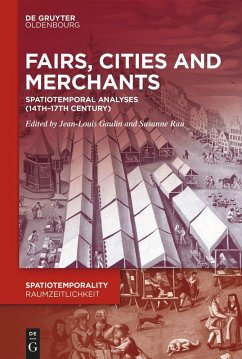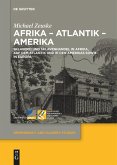Today, it has largely been forgotten that fairs played a decisive role in trade and finance in pre-modern Europe. In the Middle Ages and Early Modern period, many cities endeavoured to obtain a fair privilege and attract as many merchants as possible. Through the economic activities and infrastructures provided, a supra-regional spatial configuration gradually emerged, which was not only made up of places within a region, but across the whole of Europe and in some cases the wider world.
The contributions in this volume are based on a project jointly funded by the French Agence Nationale de la Recherche and the German Research Foundation, which focussed mainly on fairs and cities in France, the Holy Roman Empire and Italy. In chronological terms, they cover the period from the end of the Champagne fairs (ca. 1320) to the success of the Besançon fairs (ca. 1580 to 1630), which epitomised a new type of fair. The geographical focus has been extended to include fairs and trade routes in Eastern Europe and China (temple fairs). This overall view makes it possible for the first time to analyse the functions of the various market forms in their regional context and in their development: from the exchange of goods to the credit market and financing government debt, but also the deep integration of the merchant culture into urban and religious culture.
Based on archival studies and the integration of artefacts, new graphs and maps, this volume provides a new look at the history of annual markets and fairs. In addition to functional aspects, spatiotemporal aspects such as disputes over fair dates, visiting rhythms, the transport of goods and routes (by land and water) are dealt with. Credit activities, transport of goods, and mobility of merchants, trading families and companies point to the highly developed transnational dimension of pre-modern trade. The volume concludes with a presentation of the project database, its functionalities and opportunities to participate.
Hinweis: Dieser Artikel kann nur an eine deutsche Lieferadresse ausgeliefert werden.
The contributions in this volume are based on a project jointly funded by the French Agence Nationale de la Recherche and the German Research Foundation, which focussed mainly on fairs and cities in France, the Holy Roman Empire and Italy. In chronological terms, they cover the period from the end of the Champagne fairs (ca. 1320) to the success of the Besançon fairs (ca. 1580 to 1630), which epitomised a new type of fair. The geographical focus has been extended to include fairs and trade routes in Eastern Europe and China (temple fairs). This overall view makes it possible for the first time to analyse the functions of the various market forms in their regional context and in their development: from the exchange of goods to the credit market and financing government debt, but also the deep integration of the merchant culture into urban and religious culture.
Based on archival studies and the integration of artefacts, new graphs and maps, this volume provides a new look at the history of annual markets and fairs. In addition to functional aspects, spatiotemporal aspects such as disputes over fair dates, visiting rhythms, the transport of goods and routes (by land and water) are dealt with. Credit activities, transport of goods, and mobility of merchants, trading families and companies point to the highly developed transnational dimension of pre-modern trade. The volume concludes with a presentation of the project database, its functionalities and opportunities to participate.
Hinweis: Dieser Artikel kann nur an eine deutsche Lieferadresse ausgeliefert werden.








